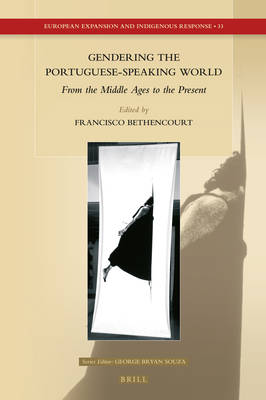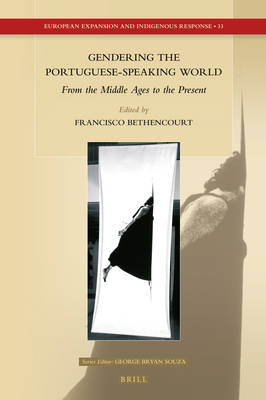
- Afhalen na 1 uur in een winkel met voorraad
- Gratis thuislevering in België vanaf € 30
- Ruim aanbod met 7 miljoen producten
- Afhalen na 1 uur in een winkel met voorraad
- Gratis thuislevering in België vanaf € 30
- Ruim aanbod met 7 miljoen producten
Zoeken
Gendering the Portuguese-Speaking World
From the Middle Ages to the Present
€ 194,95
+ 389 punten
Omschrijving
This book explores the significance of gender in shaping the Portuguese-speaking world from the Middle Ages to the present. Sixteen scholars from disciplines including history, sociology, anthropology, linguistics, literature and cultural studies analyse different configurations and literary representations of women's rights and patriarchal constraints. Unstable constructions of masculinity, femininity, queer, homosexual, bisexual, and transgender identities and behaviours are placed in historical context. The volume pioneers in gendering the Portuguese expansion in Africa, Asia, and the New World and pays particular attention to an inclusive account of indigenous agencies.
Contributors are: Darlene Abreu-Ferreira, Vanda Anastácio, Francisco Bethencourt, Dorothée Boulanger, Rosa Maria dos Santos Capelão, Maria Judite Mário Chipenembe, Gily Coene, Philip J. Havik, Ben James, Anna M. Klobucka, Chia Longman, Amélia Polónia, Ana Maria S. A. Rodrigues, Isabel dos Guimarães Sá, Ana Cristina Santos, and João Paulo Silvestre.
Contributors are: Darlene Abreu-Ferreira, Vanda Anastácio, Francisco Bethencourt, Dorothée Boulanger, Rosa Maria dos Santos Capelão, Maria Judite Mário Chipenembe, Gily Coene, Philip J. Havik, Ben James, Anna M. Klobucka, Chia Longman, Amélia Polónia, Ana Maria S. A. Rodrigues, Isabel dos Guimarães Sá, Ana Cristina Santos, and João Paulo Silvestre.
Specificaties
Betrokkenen
- Uitgeverij:
Inhoud
- Aantal bladzijden:
- 300
- Taal:
- Engels
- Reeks:
- Reeksnummer:
- nr. 33
Eigenschappen
- Productcode (EAN):
- 9789004456723
- Verschijningsdatum:
- 12/05/2021
- Uitvoering:
- Hardcover
- Formaat:
- Genaaid
- Afmetingen:
- 157 mm x 236 mm
- Gewicht:
- 544 g

Alleen bij Standaard Boekhandel
+ 389 punten op je klantenkaart van Standaard Boekhandel
Beoordelingen
We publiceren alleen reviews die voldoen aan de voorwaarden voor reviews. Bekijk onze voorwaarden voor reviews.







